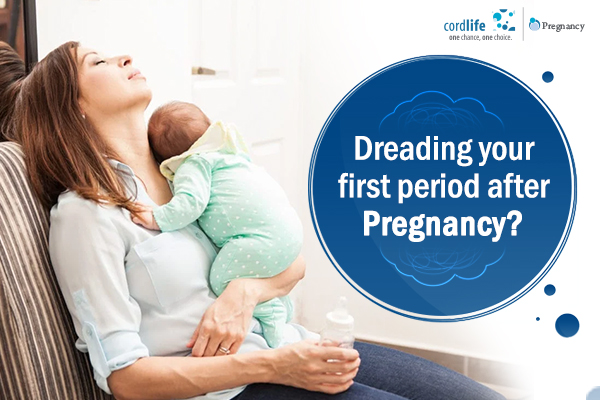Table of Contents
As we all know, pregnancy is a life-altering event. When looking into the mirror, you may notice that your skin is glowing. You may also find a newfound admiration for your body. However, out of all these changes, the most pleasant is getting a break from your periods. This could last for nine whole months, making you forget all about those dreaded period cramps.
Still, after giving birth, you may want to know when your menstrual cycle goes back to normal. A lot changes after pregnancy, and that’s the case with your periods as well. So, expect to be surprised.
When Will My Period Return?
Your periods will most probably return about six to eight weeks after you give birth. If you are breastfeeding, then it may take longer for your periods to return. If breast milk is your baby’s only source of nourishment, then you will not get periods as long as you are breastfeeding. In other cases, periods should return after a couple of months, regardless of whether you are breastfeeding or not.
If your periods return sooner than expected, avoid using tampons to give your body enough time to heal.
Why Do Breastfeeding Women Get Their Periods Later Than Usual?
Hormones play a significant role in deciding when your period comes back. Prolactin, the hormone that is essential for the production of breast milk, can suppress reproductive hormones. This stops your body from ovulating. This means you most likely won’t menstruate.
Will Period Affect Your Breast Milk?
Once your menstrual cycle kicks in, you will notice some changes. Apart from the decrease in milk supply, your baby’s reaction to the milk will also seem different. This usually happens because of hormonal changes. From the composition of your breast milk to how it tastes to your baby, hormones have a considerable impact. However, this in no way impacts your baby’s ability to breastfeed.
What About Birth Control?
Did you know breastfeeding can double as birth control? It is highly unlikely for you to get pregnant if you are engaging in exclusive breastfeeding. By exclusive, we mean that no fluids or solids should be given to the baby. If breastfeeding is not exclusive, then it may not protect you against unexpected pregnancy.
For this method to work, you also need to keep a close eye on your periods. If your period starts, then you are probably ovulating, and that may lead to pregnancy.
The best course of action is to ask your doctor to prescribe safe and effective birth control methods.
How Will Your Periods Differ After Pregnancy?
Giving birth to a baby is a harrowing experience for your body. This is why your body will take some time to adjust to menstruation and may lead to the following changes:
∙ You may experience stronger cramps
∙ You may have to deal with small blood clots
∙ You will notice a heavier flow
∙ You may experience more pain
∙ You may have to deal with an irregular cycle length
Returning to your menstrual cycles after a hiatus of nine months is going to be tricky. As you already know, your body has been pushed to its limits. So, it will take a while before your period goes back to its routine.
Needless to say, if the changes seem problematic, then get professional help. It’s always better to be safe than sorry. With that in mind, listen to your body and take care of yourself.
